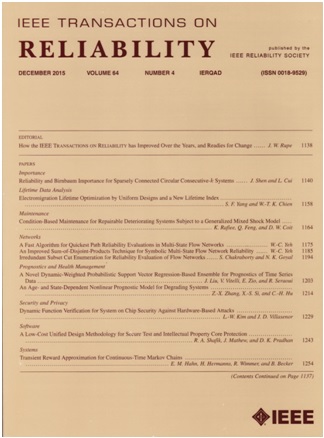多智能体系统协同控制的动态事件触发无模型强化学习
IF 5.7
2区 计算机科学
Q1 COMPUTER SCIENCE, HARDWARE & ARCHITECTURE
引用次数: 0
摘要
针对连续时间线性多智能体系统,提出了一种新的无模型动态事件触发自适应学习控制方案。该控制方案与基于模型的控制方案的不同之处在于不需要系统模型的先验知识。为了进一步减少传输数据,提出了一种基于静态事件触发机制(SETM)和动态事件触发机制(DETM)的事件触发控制策略。与SETM相比,DETM可以显著地产生更大的平均事件间隔并保持控制性能。此外,提出了一种基于离策略积分强化学习的自适应迭代方法,并证明了该方法的收敛性。在线性和非线性多智能体系统上进行了数值实验,结果表明该方法能够保证学习性能和较大的触发间隔。最后,在多区域电力系统上对该学习控制方案进行了测试,验证了该方法的可靠性和实用性。具体来说,通过三种控制方案对多区域电力系统的负荷频率控制问题进行了研究,发现DETM可以在最低的信息传输速率下获得较好的频率响应,保证了电力系统的整体质量和可靠性。本文章由计算机程序翻译,如有差异,请以英文原文为准。
Dynamic Event-Triggered Model-Free Reinforcement Learning for Cooperative Control of Multiagent Systems
In this article, a novel model-free dynamic event-triggered adaptive learning control scheme is developed for continuous-time linear multiagent systems. This control scheme is different from model-based control scheme in the sense that prior knowledge of the system's model is not required. To further reduce transmission data, an event-triggered control policy based on static event-triggered mechanism (SETM) and dynamic event-triggered mechanism (DETM) is proposed. Compared to SETM, DETM may significantly produce larger average event intervals and maintain control performance. In addition, based on off-policy integral reinforcement learning, an adaptive iteration method is proposed with convergence proof. Numerical tests on both linear and nonlinear multiagent systems are conducted to demonstrate that the proposed scheme can guarantee learning performance and larger triggering intervals. Finally, the learning control scheme is tested on the multiarea power system, which can illustrate the reliability and practicality of this method. Specifically, the load frequency control problem of the multiarea power system is studied using three control schemes, revealing that DETM can achieve a better frequency response at the lowest information transmission rate and ensure the overall quality and reliability of the power system.
求助全文
通过发布文献求助,成功后即可免费获取论文全文。
去求助
来源期刊

IEEE Transactions on Reliability
工程技术-工程:电子与电气
CiteScore
12.20
自引率
8.50%
发文量
153
审稿时长
7.5 months
期刊介绍:
IEEE Transactions on Reliability is a refereed journal for the reliability and allied disciplines including, but not limited to, maintainability, physics of failure, life testing, prognostics, design and manufacture for reliability, reliability for systems of systems, network availability, mission success, warranty, safety, and various measures of effectiveness. Topics eligible for publication range from hardware to software, from materials to systems, from consumer and industrial devices to manufacturing plants, from individual items to networks, from techniques for making things better to ways of predicting and measuring behavior in the field. As an engineering subject that supports new and existing technologies, we constantly expand into new areas of the assurance sciences.
 求助内容:
求助内容: 应助结果提醒方式:
应助结果提醒方式:


